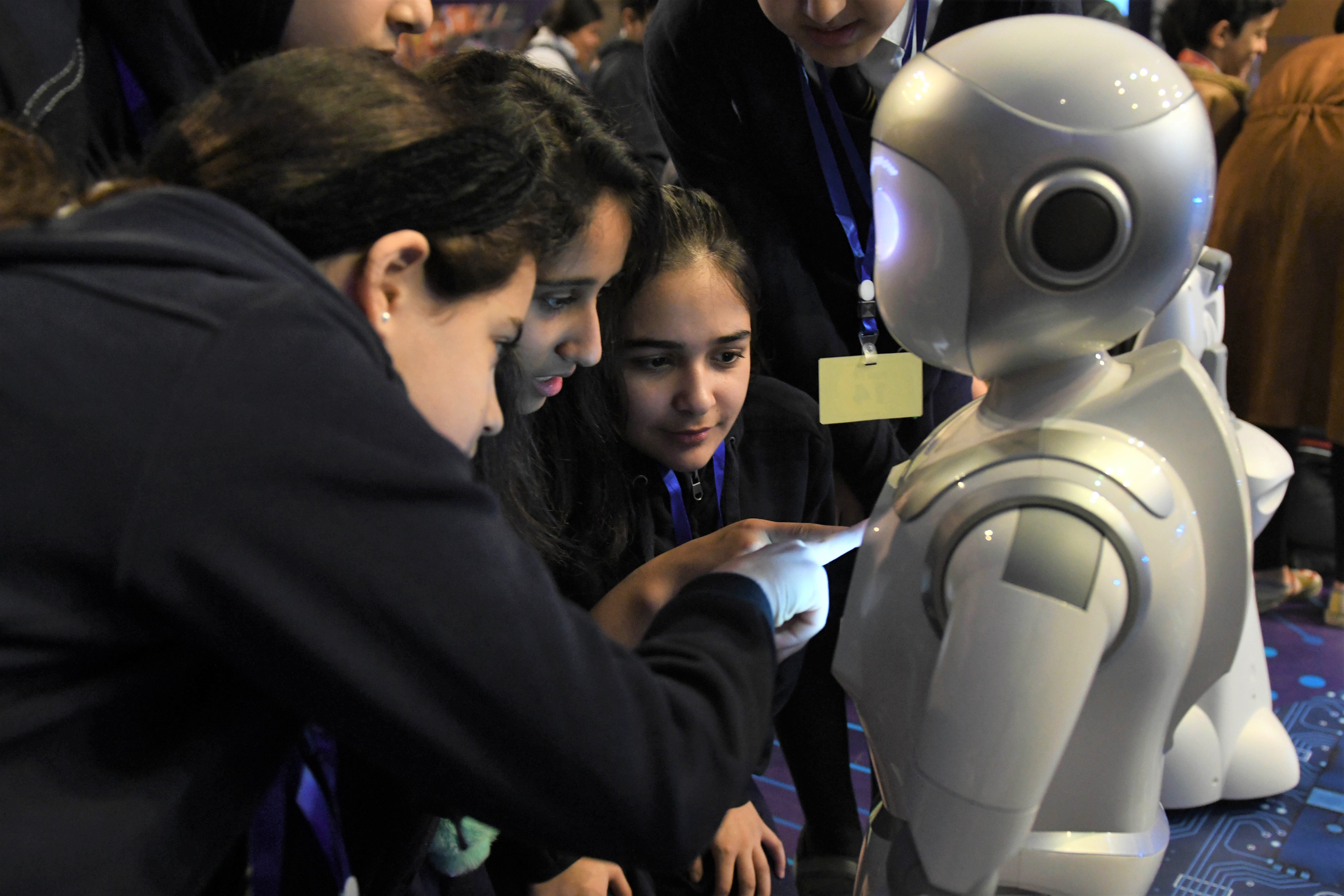Experts discuss benefits, risks of artificial intelligence
- By Zhang Liying and Liu Caiyi
 0 Comment(s)
0 Comment(s) Print
Print E-mail China.org.cn, June 22, 2020
E-mail China.org.cn, June 22, 2020

Artificial intelligence (AI), one of the most promising technologies for changing the world, is playing a key supporting role in curbing the spread of COVID-19.
From improving contact tracing to analyzing disease vectors and identifying drug candidates, AI has been used in varied ways to combat the pandemic.
However, there are also increasing concerns about potential risks the technology poses to privacy, data security and even human existence.
At a panel discussion during the World Peace Forum (WPF) Special Video Conference on June 16, experts from China and the United States discussed how to tackle the challenges and ensure AI develops for the good of humanity.
According to Xue Lan, dean of Schwarzman College of Tsinghua University, context was important for the use of AI. Many applications would not have been possible in some countries if not for the perceived good it offered in containing the virus, he stressed.
"In some extreme cases, for example, in the fight against COVID-19, we want the technology to be used in many ways," Xue said. "However, at the same time, allowing people to use some sensitive data does not mean we should write them a blank check."
Caution and care were still vital to minimize the use of sensitive data and protect people's privacy, he added.
Stuart Russell, Smith-Zadeh Professor in Engineering at University of California, Berkeley, called for the international community to agree on a treaty restricting or banning lethal autonomous weapons.
"The principal reason for a ban is that lethal autonomous weapons, by removing human supervision of individual attacks, will inevitably become scalable weapons of mass destruction," Russell said. "They will be cheaper, more effective, more selective, and easier to proliferate than nuclear weapons."
Russell also urged countries to avoid an arms race in creating super intelligent AI, as an essential component in preventing long-term risk, noting there was broad agreement on the likelihood that, within this century, AI systems would exceed human capabilities in general intelligence.
He said that in order to preempt the threat of AI, the technology community needed to pursue a completely different way of designing AI systems to ensure they were beneficial to humans.
"If we succeed in creating safe and beneficial general-purpose AI, it will, in effect, be a source of essentially unlimited goods and services for all," Russell said. "At that point, arguing about who has more of what, and going to war over it, will make no more sense than arguing over who has more copies of a digital newspaper."
An arms race is self-defeating, as it risks losing everything, if it leads to cutting corners on safety and losing control over AI, he concluded.
Zhang Yaqin, dean of Institute for AI Industry Research at Tsinghua University, said the role AI was playing was useful and valuable, but this was more of a supportive role. "I think it can play a more important and transformative role."
However, basic rules had to be defined to ensure AI technologies were used for appropriate purposes.
Wendell Wallach, an expert from the Interdisciplinary Center for Bioethics at Yale University, said the Beijing AI Principles were welcome in emphasizing that AI must be developed for the good of all of humanity.
In May, 2019, a group of Chinese leading institutes and companies published a set of ethical standards for AI research, and called for international cooperation amid vigorous development of the industry.
According to the 15-point principles, the purpose of AI was defined as promoting the progress of society and human civilization and advancing the sustainable development of nature and society.
Max Tegmark, a professor at Massachusetts Institute of Technology, said AI would become the most powerful technology ever, while posing large-scale unconventional challenges no country could address alone.
"It's not a zero-sum game," Tegmark said. "The fundamental driver of collaboration is a shared positive vision. Everybody realizes that if they work together, they'll be all better off than otherwise."
He said China could make a unique contribution in steering AI towards a globally positive future, as it was a leader in the technology and has a unique tradition of long-term thinking.
The WPF is a high-level non-governmental global forum on international security organized by China's prestigious Tsinghua University. Since its inception in 2012, the forum has been held eight times, usually in June or July. Due to the impact of COVID-19, this year's event was held online.






Go to Forum >>0 Comment(s)